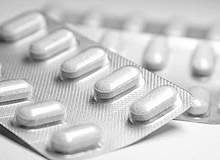
The US Food and Drug Administration Recently finalised new procedures to help speed up reporting and analysis of potential safety problems encountered during clinical trials. Under a final rule that will go into effect in March 2011, reportable events will be defined as “any untoward medical occurrence associated with the use of a drug in humans, whether considered drug related.” Any such event must be reported to the FDA within 15 days and serious unexpected events should be reported immediately. While the FDA is still developing separate rules for postmarketing safety reporting the events, the new rules will only apply to adverse events in trials conducted under investigational new drug (IND) protocols.
The FDA’s guidelines also state that each event report must also include information on previous reports of similar events, updating sponsor-produced brochures explaining study protocols to investigators, and all serious adverse events occurring in bioavailability or bioequivalence studies conducted under IND’s, whether or not they are potentially drug related, must be reported to the FDA.

Discover B2B Marketing That Performs
Combine business intelligence and editorial excellence to reach engaged professionals across 36 leading media platforms.
This effort to closely monitor outcomes of all clinical trials will affect all companies conducting trials, altering administration procedures in particular. Delegates meeting in Philadelphia for Arena International’s conference will no doubt reflect on the new US rules, while also looking at ways to improve their individual processes. Here are some of the other big areas that speakers and delegates will examine at the clinical trials event in October 2010.
Stem cells on trial
In August 2010, pharmaceutical-technology.com reported that stem cell treatments were being trialled to help treat major diseases and disorders.
From the US Food and Drug Administration’s (FDA) recently approved clinical trials of a stem cell-based treatment for acute spinal cord injuries to work on stroke rehabilitation, treating cancer and type 1 diabetes, major clinical trials are underway and many first phase trials have proved successful.

US Tariffs are shifting - will you react or anticipate?
Don’t let policy changes catch you off guard. Stay proactive with real-time data and expert analysis.
By GlobalDataThe packaging and labelling landscape
Ensuring counterfeit drugs do not enter the supply chain is a continuous battle for pharmaceutical companies. Estimates suggest that 10% of global drugs are counterfeit and 30% of product recall in the pharmaceutical industry is attributable to packaging.
The September 2010 Arena International pharma packaging and labelling event in Munich, Germany, tackled the subject of counterfeit drugs among other big issues affecting the industry. At the upcoming clinical trials event, case studies on packaging will concentrate on technology and methodology to ensure site compliance. The Almac group is expected to take the platform to demonstrate how it is overcoming challenges presented in treatment settings. Almac is also expected to offer solutions for binding a product with no matching placebo in unblended individuals before finally sharing success stories in methods of overcoming hurdles in packaging and supply chain management.
Outsourcing and supply
As reported by pharmaeceutical-technology.com in the Outsourcing Clinical Trials feature, drug development can be one of the most competitive and unforgiving industries in the world.
As a result pharmaceutical and biotechnology companies are continuously striving to cut costs and boost efficiency to develop products. Part of this process is outsourcing the trial process to international companies.
Outsourcing the clinical trial process to a team abroad has been embraced by the industry as a method of saving time and money while gaining access to large patient bases.
However, the outsourcing process is complex, requiring a great deal of communication and management expertise to maintain standards and achieve results.
Once departments are working on the actual trials, it is vital that supply departments, which face increasing pressure to justify waste and reduce costs, ensure efficiency at each stage.
Speakers at Arena International’s conference in the US will address issues such of cost and how to save, especially in the current economic climate. Panel discussions and debates will also look at how to use IVRS capabilities to ensure maximum benefits from the trial, creating vendor partnerships that deliver on time and budget, and reducing risks during the trials themselves.
The eighth Annual Clinical Trial Supply West Coast conference will take place on 20-21 Octobert in Philadelphia, US.




